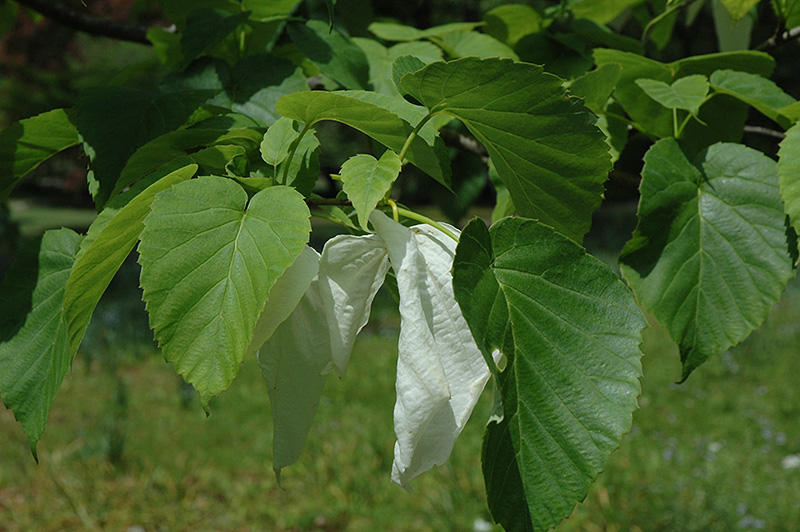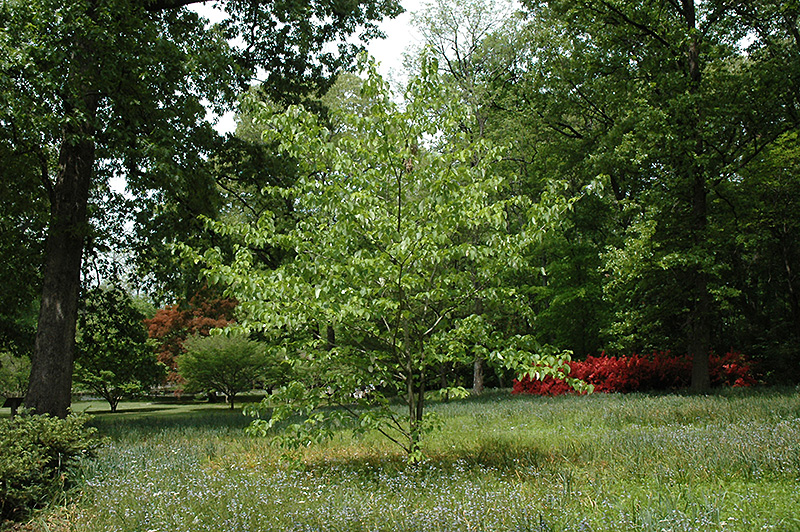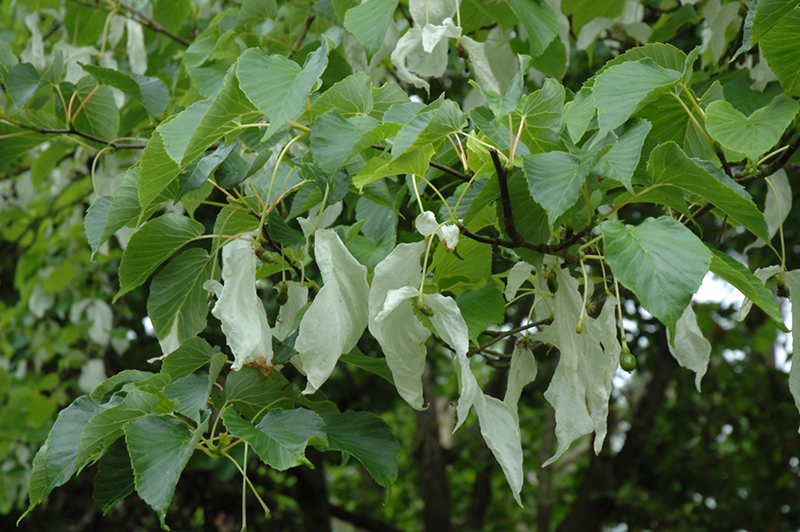Height: 60 feet Spread: 35 feet
Sunlight:
Hardiness Zone: 5 Other Names: Handkerchief Tree, Ghost Tree Description: An exotic deciduous tree that is broadly pyramidal in habit when young; small reddish-purple flowers in spring have large white bracts that are visually stunning, giving the tree its common names; may not flower for first ten years Ornamental Features Dove Tree features showy clusters of red flowers with white bracts at the ends of the branches in mid spring. It has attractive dark green deciduous foliage which emerges lime green in spring. The serrated heart-shaped leaves are highly ornamental and turn orange in fall. It produces brown nuts in mid summer. The peeling brown bark is extremely showy and adds significant winter interest. Landscape Attributes Dove Tree is a deciduous tree with an upright spreading habit of growth. Its average texture blends into the landscape, but can be balanced by one or two finer or coarser trees or shrubs for an effective composition. This is a relatively low maintenance tree, and should only be pruned after flowering to avoid removing any of the current season's flowers. It has no significant negative characteristics. Dove Tree is recommended for the following landscape applications; Planting & Growing Dove Tree will grow to be about 60 feet tall at maturity, with a spread of 35 feet. It has a low canopy with a typical clearance of 4 feet from the ground, and should not be planted underneath power lines. It grows at a slow rate, and under ideal conditions can be expected to live for 80 years or more. This tree should only be grown in full sunlight. It prefers to grow in average to moist conditions, and shouldn't be allowed to dry out. It is not particular as to soil type or pH. It is somewhat tolerant of urban pollution. This species is not originally from North America.![]()
![]()
![]()
![]()
![]()
![]()
![]()
![]()
![]()
![]()
![]()
![]()
![]()
Plant Finder
Characteristics
Applications
Features & Attributes



